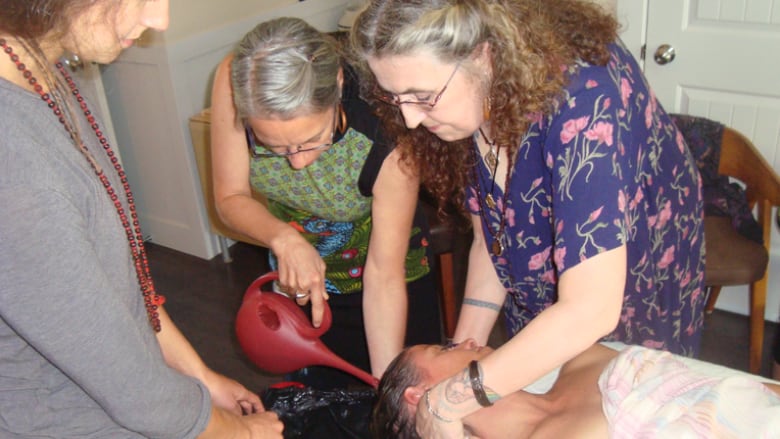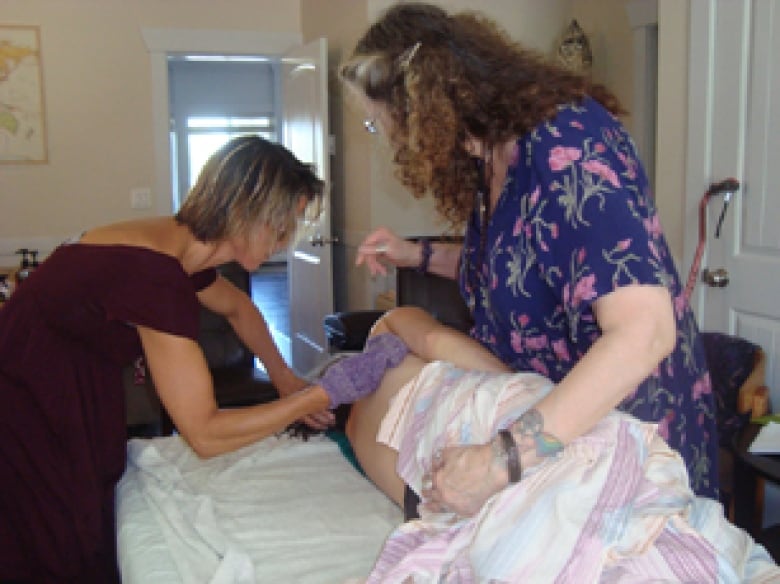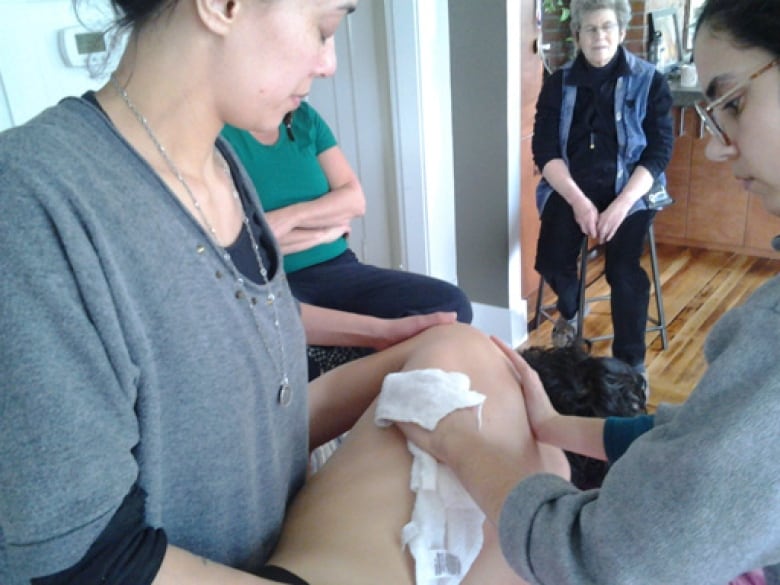DIY funerals: Death midwives offer a 'more authentic' funeral experience
Home funerals can be done safely and legally meet the people to show you how

DIY Funerals: Rite at Home is a five-part radio series exploring home funerals. The series runs July 4 to July 8 on CBC Radio One's afternoon shows in B.C.
Pashta MaryMoon was seven years old when she realized caring for the dead and dying was her calling.
She was watching an old Western movie and saw a pioneer woman deal with her husband's death in a way that resonated with her.
"She had to clean him up herself, dig the grave, put him in, say her goodbyes, fill in the grave and carry on, and I walked away from that movie saying that's the way it should be," said MaryMoon.
Now in her mid-sixties, Victoria-based MaryMoon works as a death midwife.

Death midwives offer emotional support topeople who are dying and practical support for theloved ones who want to care for them at home after they die. MaryMoon has led workshops across B.C. that teach people how to wash and care for a dead body themselves.
According to MaryMoon, home funerals are attracting a growing number of British Columbians.
- Smiths Falls, Ont., funeral business dissolves the dead, pours them into town sewers
- B.C. home funeral workshops teach loved ones to care for corpses
- 'Corporatization' of funeral industry drives quest for alternatives
"A lot of people are recognizing that there is something missing with the way we are dealing with death even when teaching people and practising on a pretend dead body, they get the sense of how sacred this can be."
MaryMoon is full of practical do-it-yourself tips for caring for your own dead, including cleaning a body with essential oils, strategically placing ice packs to keep a body cool and odourless, and using sandwich bags filled with rice to force close the eyelids of a corpse.
"We have this idea in our culture that somehow one minute after it died a body is different than one minute before it died, and that's not the reality," she said.
"There is a slight change in the colour of the skin as the blood pulls towards the back of the body, but the body does not change that much in the first three to fivedays."

'A more authentic experience'
To meet the demand for information and practitioners, MaryMoon founded the Canadian Integrated Network for Death Education and Alternatives, an online forum that connects people with the resources they need to care for their own dead. She also trains others who want to become death midwives.
Tricia Keith was mentored by MaryMoon and offers death midwifery services in the Lower Mainland. According to Keith, death midwives' roles are increasingly important as B.C. prepares for a "silver tsunami" of baby boomers.
"As the tsunami happens, there is not going to be enough ... nursing homes, cemeteries or crematoriums," Keith said. "There is not going to be enough to handle the death that is coming in the next 30 years."
Keith acknowledged death midwifery might not be for everybody, but reasons like affordability and eco-consciousness are attracting people away from the traditional funeral industry.

"A lot of people ache for a more authentic experience."
Keith lost her father when she was in her early 20s. She says the clinical, sterile experience of the hospital and funeral home did nothing to make his passing easier for her.
"Had there been another space that we were able to see my dad acozier space that would have been an intimate experience we could have taken away," she said.
"But we didn't. So through that experience with my dad, and wanting more from it, that's how I got into where I am at today."
With files from CBC Radio One's On The Coast












_(720p).jpg)


 OFFICIAL HD MUSIC VIDEO.jpg)
.jpg)



























































































